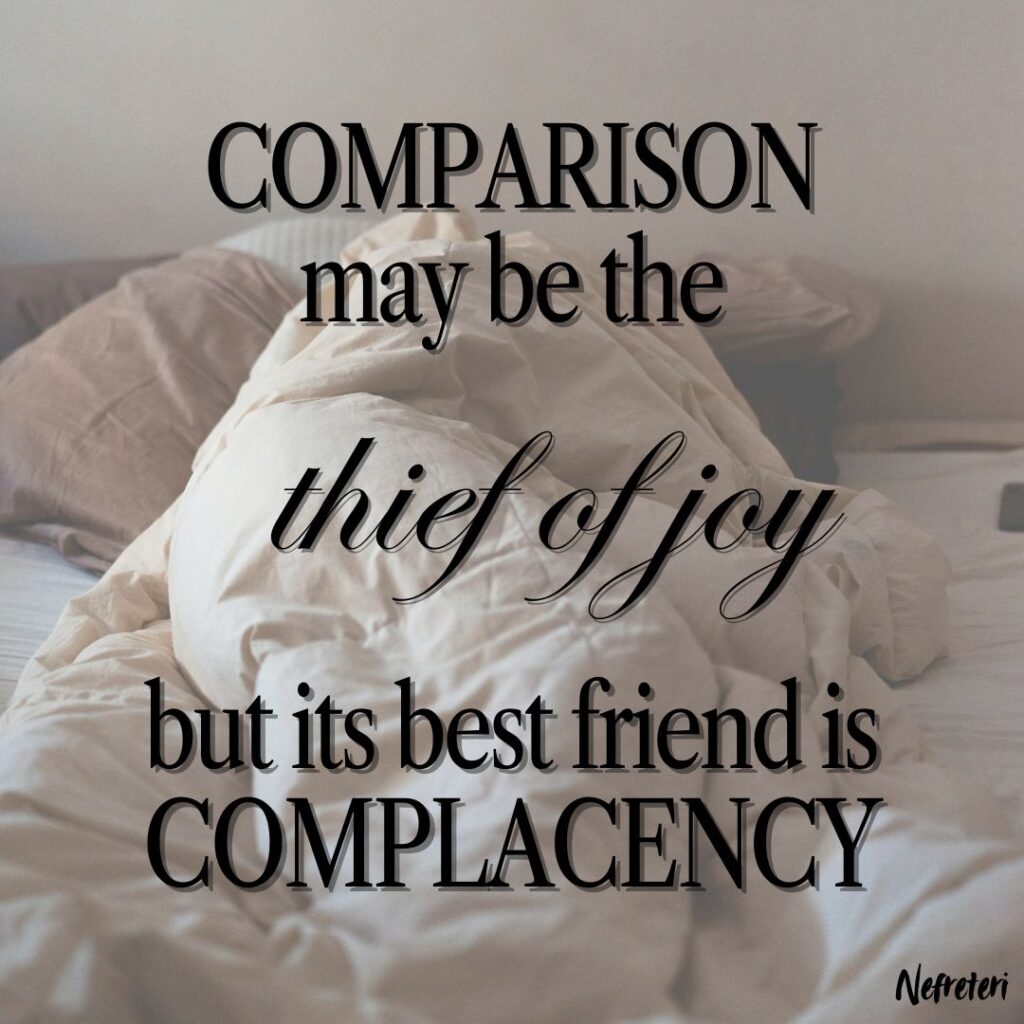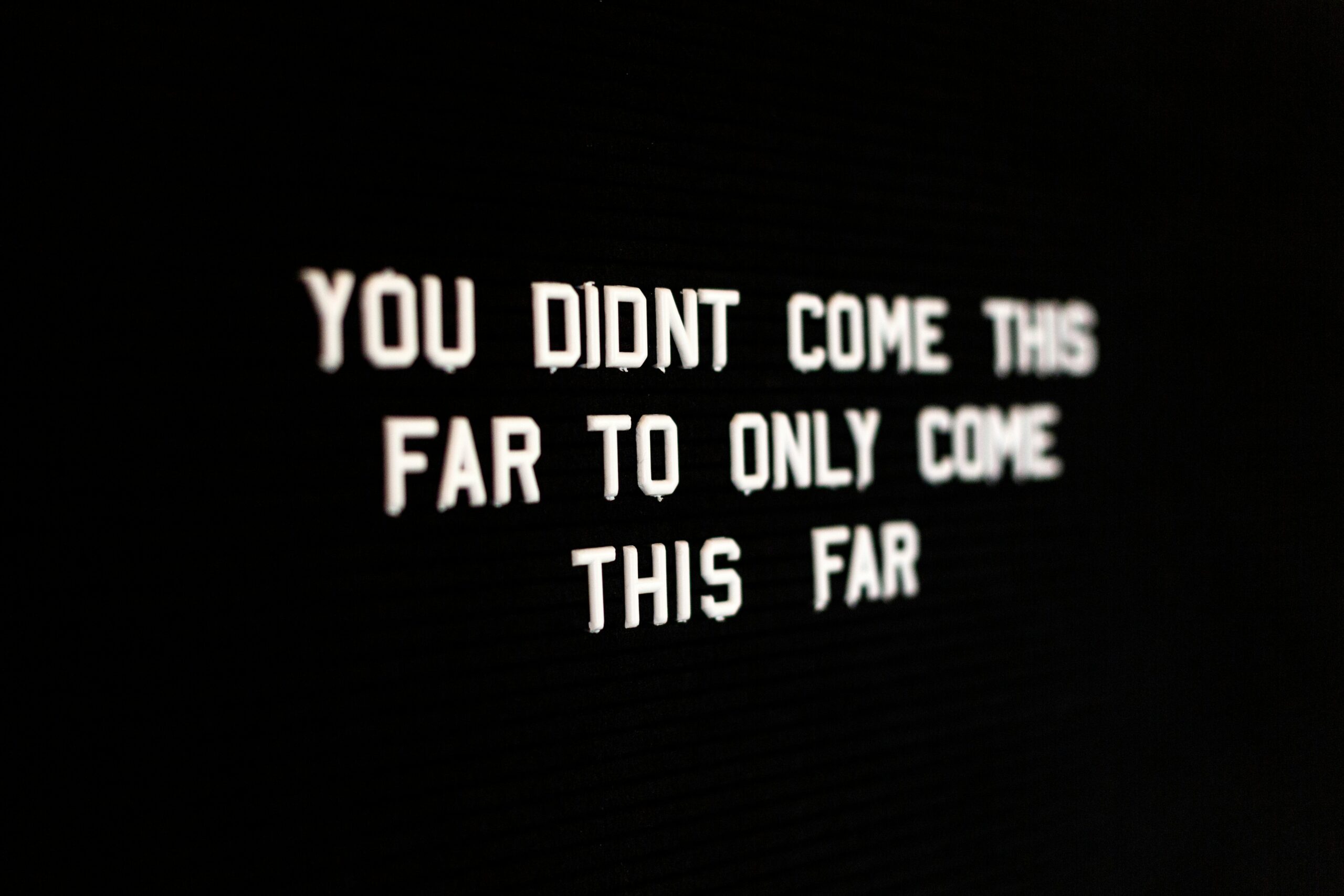Comparison is often blamed for negative emotions, low self-worth, and a sense of inadequacy. And truthfully, the negatives of comparison often do outweigh the positives. Yet, we keep doing it. But why?
The moment we go online, we’re bombarded with lists like Forbes 30 Under 30 or 20 Under 20, and before we know it, we’re questioning our own achievements. We think, “I’m the same age, and look at where I am—I’m a total failure.”
I get it. Our society rarely celebrates the real everyday heroes—healthcare workers, teachers, policemen, or stay-at-home parents. Jobs that keep the world running. Jobs that are essential to a functioning society, often go unnoticed. Instead, we idolize celebrities and influencers, often praising those who produce superficial content over those contributing significantly to the community.
The Trap of Superficial Comparison
In our media-drenched culture, it’s easy to fall into the trap of comparison. We look at celebrities and think, “Wow, they’ve got it all!” But what are we really comparing? Too often, it’s superficial things: their wealth, looks, or fame. Yet none of these aspects truly define happiness or self-worth. Still, we persist. Why? Because we haven’t been taught to use comparison in a meaningful way.
Recently, I was inspired by something that I read, which made me compare my life and mindset to someone else.
Now I didn’t do it out of jealousy. I didn’t dislike the person. I was genuinely curious. I compared my mindset, actions, and my current state of life to theirs.
I immediately noticed that my thoughts were not in alignment with my actions.
People readily focus on the negative, so we’ve turned comparison into a negative word.
The dictionary definition of
compare: to examine (two or more objects, ideas, people, etc.) in order to note similarities and differences.
Actually, most definitions are positive or neutral. The definition we focus on is rival. Which is viewed in a negative light.
“I immediately noticed that my thoughts were not in alignment with my actions.”
But what if we flipped the social script?
Instead of letting comparison fuel feelings of inadequacy, what if we used it as a tool for growth?
But what if your comparisons inspire you?
What if we were capable of looking at another and not hating them for their “unfair privileges”?
Using Comparison for Self-Discovery
Much of our negative comparisons come from our value system. We focus on extremely superficial things because that is what society values.
Instead of focusing on the superficial —materialism, appearances, or fame—shift your attention inward. Compare qualities that really matter, like happiness, peace, purpose, and character. Use the act of comparison to motivate you to become better, rather than to tear yourself down.
If you are upset with your current state of existence, ask yourself, “How can I change this?
Know that comparison is natural, though. It’s just how you approach it. When you compare and get jealous or bitter, that is indeed the thief of joy.
I have noticed that most people, when they come in contact with a person that they perceive as “better” (eg, richer, fitter, more attractive, talented, happier, etc.), they resent them. Openly resent. Some even boldly hate them. They diminish or demean the person before they even get to know them.
We have universally decided in the West that mediocrity is for the majority, and only a few will achieve any form of greatness. And those who are great should not walk amongst us. The masses wish to admire them from afar.
What I have not seen are people asking why and how questions. If they do, they’re loaded questions, not really one from curiosity.
Examples:
- People diminish really fit people by saying, “ohh you must spend every day in the gym?”
- Rich people are just greedy or inherited it, never, never could they be a hard worker and practiced delayed gratification.
- Beautiful women by default, sit in front of the mirror all day and somehow the bank account gets larger.
- Happy people have suffered no trauma, and it must be a personality trait.
We are constantly told not to compare ourselves to others for our self-esteem, because everyone’s on their own journey, etc. While these are correct, what we have failed to acknowledge is that though people don’t want to be judged, we are more judgmental than ever. Social media has turned us into enemies. We judge even those we love and admire whilst judging ourselves.
The correct action would be to celebrate them and take action on the inspiration roused in us.
The greatest quality people secretly desire from great people is humility. But humility is a virtue. And most people aren’t virtuous, so why do you expect so much from them? Just because someone holds success in the world’s eyes does not mean they are of higher character than so-called unsuccessful people. A lost but great virtue we can all start practicing again is contentment.
There is another path people choose when comparing that is far from ideal, and it is complacency. Have you ever compared yourself to someone “greater” and made an excuse for why they were there? Then looked at your friend group and said, “Well, I’m doing better than all of them.” There are too many people who settle because the people that they surround themselves with may talk about dreams and aspirations, but never act upon them.
If comparison is the thief of joy, I’d like to add that “complacency is its best friend.” When you believe something is unattainable, you won’t pursue it. When you look around you and you’re pretty much even-keeled with everyone else, very few will gain the motivation to rise up and change their circumstances.
The comparisons we should be making should be positive and uplifting. I would be a charlatan to tell you that this is possible for everyone who tries, but sadly, it is not. Hate lives in the human heart, and all of the positive, fluffy words will not drive out jealousy and humans’ propensity for negativity.
But there are things we can do.

Recognizing What Truly Matters
Have you ever met someone who seemed to contradict everything the world tells you about success and happiness? Maybe they walk into work or class every day with a genuine smile. And there you are, putting on a fake one, just trying to get through the day. It starts to make you question everything. How can they be so happy when they’re not rich, in a relationship, or living an outwardly perfect life?
This is where comparison usually turns sour. You realize that it’s not money or status making them happy, and you start to feel even worse. But this is exactly the moment where you should stop and ask yourself a critical question: What can I learn from this person?
Instead of feeling bitter or envious, ask them. Yes, ask them how they manage to be so happy or content. It sounds simple, but we rarely do it. We speculate, gossip, and make assumptions, but we never get curious enough to simply ask, “What’s your secret?”
So if we want to learn how to master comparison, the best people to ask are kids!
Regaining childlike qualities
Curiosity
The first quality we need to adopt is curiosity. As adults, we lose the childlike wonder and inquisitiveness that once made learning so easy. When kids are curious, they ask questions and wait for the answers. They don’t interrupt, project their assumptions, or let pride get in the way.
For most adults, however, pride often stifles curiosity. We think we already know everything, or we’re too afraid to admit that we don’t. This prevents us from learning and growing. If we could set aside our egos and embrace curiosity again, imagine how much we could gain from the people around us.
Fearlessness
The second quality we need to cultivate is fearlessness. No, I’m not asking you to do something drastic like quit your job or give a public speech. I’m simply suggesting you ask someone a question. It might seem like a small act, but for many, even this can feel daunting.
We’re so busy hating on people, we forget they really are just like us and have the same needs and desires. People are often flattered when you show genuine interest in them. If someone has qualities you admire, they will likely be open to sharing how they developed them.
Actually, many people are happy to help others along their journey, especially regarding challenges they’ve overcome.
Role Models
The third shift is to stop being ashamed of having role models. As children, we idolized people openly, whether they were superheroes, athletes, or even family members. But somewhere along the way, adulthood made us feel like we should stop looking up to others around us. Only big names who have achieved things we believe is unattainable.
That is not helpful.
The truth is, there’s nothing wrong with having role models, but we need to choose them wisely. Instead of idolizing celebrities for their fame or wealth, look for people who exemplify qualities you admire, such as kindness, perseverance, or integrity.
Healthy Comparison as a Tool for Growth
At this point, you’ve likely realized that comparison doesn’t have to be a bad thing. In fact, it can be a powerful motivator if done right. Take athletes, for example. When competing, they study their opponents, not out of jealousy, but to improve their own performance. Athletes know that breaking records is about pushing human potential, not about proving their worth.
In the same way, we can view the success of others as a testament to what’s possible, not as a reflection of our inadequacy. If someone has achieved something remarkable, let that inspire you to push yourself further. View their success as evidence of human potential, and believe that you, too, have untapped reserves of strength and creativity.
Building Upon What’s Been Done Before
Think of it like this: when Thomas Edison invented the lightbulb 💡, no one could go back and reinvent it. But that didn’t stop people from building on his invention. Today, we have more efficient, eco-friendly lighting solutions because innovators saw Edison’s work as a foundation, not an endpoint.
The same applies to your own life. Rather than being jealous of someone else’s achievements, ask yourself how you can build upon what they’ve done. How can you take inspiration from their journey to add value in your own unique way?
Conclusion: The Path to Positive Comparison
Comparison is inevitable, but how we use it is up to us. By shifting your focus from external success to internal growth, embracing curiosity, fearlessness, and the value of role models, you can harness the power of comparison to discover your full potential.
You are unique, valuable, and capable of great things. Instead of seeing others as competition, view them as inspiration. And remember, your worth is not defined by anyone else’s accomplishments but by your own growth and contributions to the world.
I wish more people would put aside their insecurities when presented with an unusual person and ask them what beliefs and actions shaped them into who they are today. I wish more people would ask others the source of their happiness.
If you admire someone and sense a good heart in them, don’t judge or negatively compare, just ASK them. You’d be surprised how many successful or happy people are willing and wanting to mentor others.
➡️ If you want to know where I get the strength to love people and my ultimate source of contentment and joy comes from, CLICK HERE






Read the Comments +